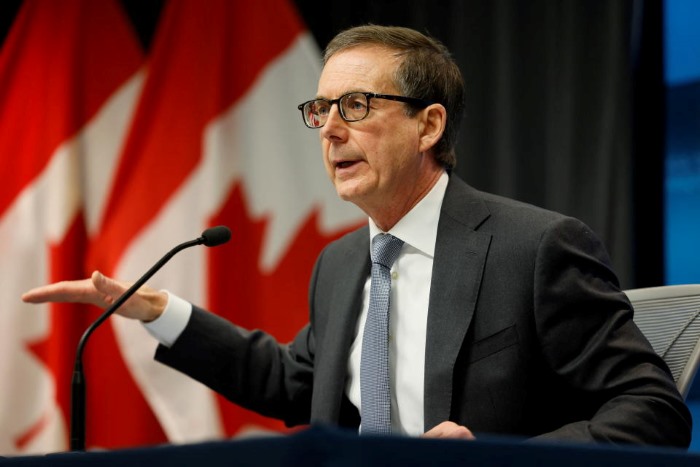In a recent address, Bank of Canada Chief Governor Tiff Macklem emphasized the limited effectiveness of monetary policy in addressing the ongoing housing crisis. This suggests a potential shift in approach towards tackling the root causes of rising costs.
Shelter Inflation Dynamics:
Macklem acknowledged the complex dynamics driving shelter inflation, with mortgage interest costs impacted by rate increases and a persistent shortage of housing supply. He emphasized the current focus on interest rates. However, he pointed out that it might not be sufficient to address the multi-faceted challenges in the housing market.
Caution Against Overreliance:
Emphasizing the importance of avoiding unrealistic expectations, Macklem highlighted the need to refrain from overloading monetary policy. He underscored that policymakers should concentrate on the realistic capabilities of monetary measures. He suggested that a broader perspective is necessary to address the fundamental issues contributing to the housing crisis.
Policy Rate Maintenance:
The Governor’s comments come in the aftermath of maintaining the policy rate at 5% for the fourth consecutive meeting. While this might have fueled expectations of continued interest rate stability, Macklem hinted at a more nuanced evaluation of the duration of restrictive rates.
Structural Issues in Housing Supply:
Macklem outlined structural issues such as zoning restrictions, approval process delays, and shortages of skilled workers as contributors to the chronic housing supply-demand gap. He clarified that these issues are beyond the immediate reach of monetary policy.
Challenges in the Supply Side:
Addressing the audience, Macklem pointed out that monetary policy’s impact on the supply side is considerably limited, focusing primarily on short-term demand. Resolving deep-rooted structural problems affecting supply requires alternative, multifaceted strategies beyond the scope of traditional monetary measures.
External Factors and Global Events:
The Governor emphasized the limited influence that monetary policy holds over external factors. Specifically, he pointed out the challenges posed by fluctuations in oil prices and transportation costs, which are often driven by geopolitical events. If increased volatility occurs, the focus will be on assessing the broader implications for inflation across various goods and services.
Lessons Learned from Inflationary Period:
Bank of Canada Chief, Macklem reflected on lessons learned during the recent inflationary period, admitting that the bank could have withdrawn stimulus sooner. The delay in adjusting rates following the pandemic contributed to an immediate upward pressure on prices. This prompted a call for a prompt and forceful response once the persistence of inflation became evident.
Call for Comprehensive Solutions:
Canada is currently facing a housing crisis. Macklem’s nuanced stance implies a requirement for comprehensive, multi-faceted solutions that go beyond the conventional scope of monetary policy. He urges policymakers to specifically address the structural challenges contributing to the housing shortage.
“The power of education transforms lives, fostering equity, innovation, and opportunity for all individuals globally,” said

